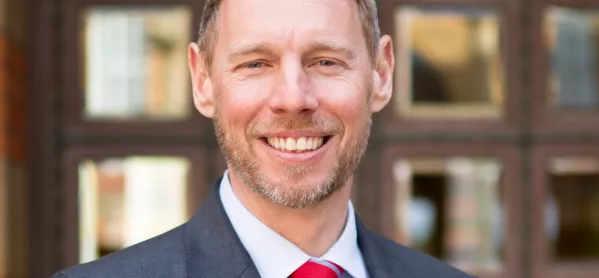Last month, my school, Wellington College, launched a campaign that will dramatically increase our bursary provision, allowing students with real promise, but limited financial means, the opportunity to come to Wellington College. The aim is an ambitious one: to extend bursaries to 50 per cent of students. The time commitment required is considerable: 20 years and beyond. The impact will be immense: transformational for both the college and for the individuals involved.
Detractors of independent schools claim that we have lost our way; that we have turned our back on our traditional pupil base; that we have become the preserve of the wealthy. They are not far wrong. Soaring fees have priced many out of the market - that, we can’t deny. We are all culpable, to an extent - that much we must accept. However, the notion that it is too late, that the situation is irreparable, is something I cannot accept.
It is simply a matter of priorities.
At Wellington, our aim is to raise funds to provide significant fee remission for 25 per cent of students by 2028, and then to double this to 50 per cent by 2038. This is not just about justifying our charitable status. It is about reminding ourselves why we were granted charitable status in the first place. Widening opportunity and access is part of our DNA.
Wellington College was established in 1859 to educate the sons of soldiers killed in action at minimal cost. While the need for this has, thankfully, diminished over the years, the college has remained committed to the cause, ensuring that children of talent and promise are given access to an independent education.
Independent schools ‘transform families’
Our energies, over the past few years, have been focused on our Independent State School Partnership (involving 11 local secondary schools), and our sponsorship of two (soon to be three) state academies, as well as the provision of means-tested bursaries to around 10 per cent of the student body. The launch of our new campaign is simply a reaffirmation of our commitment to inclusive education. By extending our bursary provision, we aspire to match the level of support provided at our foundation. We are going back to our roots.
And we are being creative about it. In the past year alone, we have raised £1.5 million for our widening access campaign and, combined with the income from our international schools, this has given us the opportunity to make significant progress. There is another message here for the critics. Independent schools have come under fire for seeking commercial deals abroad. We’ve been accused of doing so to fuel our greed. At Wellington, our motivation is different. Most of the income generated from our international schools goes straight into bursary funds and towards our other programmes for widening access - the international interests bring opportunities at home, and with those opportunities comes the potential to change lives.
My father was a printer; my mother was a home-maker. We were far from wealthy. My brother and I benefited from fee assistance, which allowed us to attend an independent school - but this was at a time when fees were within reach, when reasonable sacrifices could be made, when choice existed. We need to get back to this.
This experience taught me that anything is possible. It instilled in me the belief that an independent education should be accessible to all because it has the power to transform not just individuals, but those around them, too - their families and their peers.
Julian Thomas is master of Wellington College and chief executive of the Wellington Group of Academies and Schools. Wellington College was boarding school of the year at the 2018 Tes Independent School Awards


